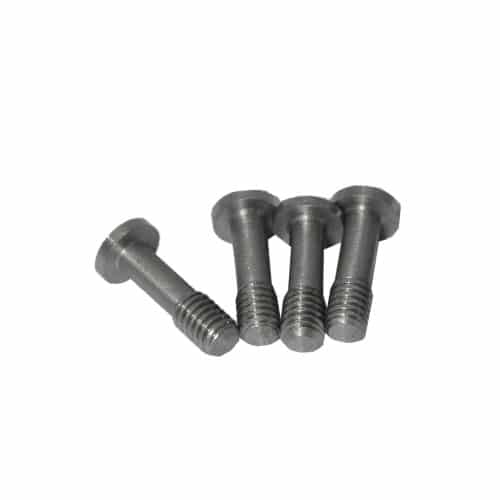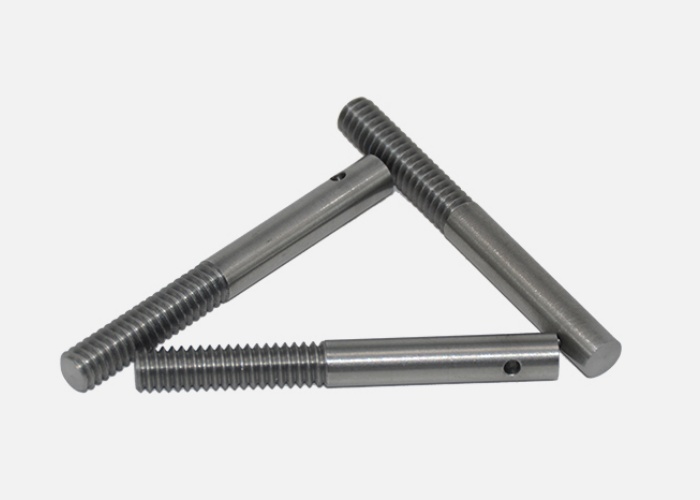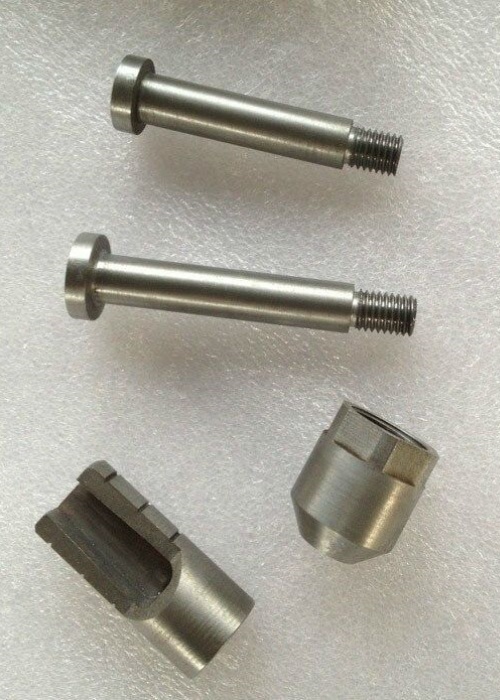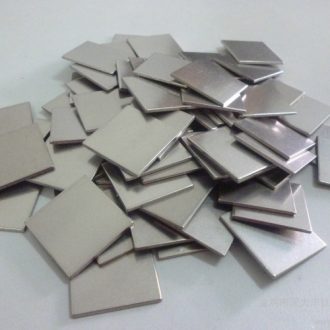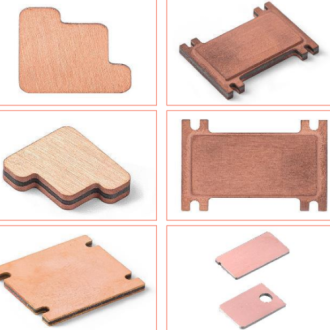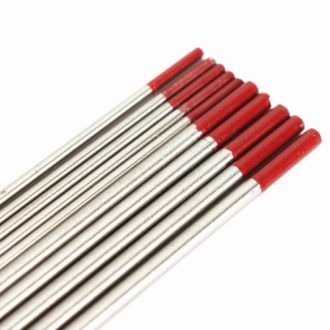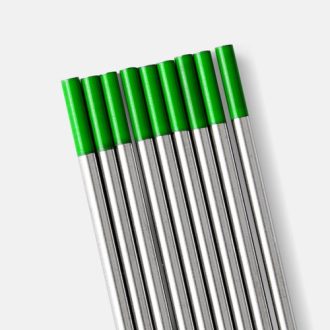Molybdenum Bolts
|
Parameter |
Molybdenum Bolts (Mo) | Stainless Steel (316L) | Nickel Alloy (Inconel 718) |
| Max Operating Temperature | 1800°C | 800°C |
1200°C |
|
Density |
10.2 g/cm³ | 8.0 g/cm³ | 8.2 g/cm³ |
| Tensile Strength (Room Temp) | 800–1000 MPa | 500–700 MPa |
1200–1400 MPa |
|
Tensile Strength (1500°C) |
560–700 MPa | Failed | 200–300 MPa |
| CTE | 5.3×10⁻⁶/°C | 16.0×10⁻⁶/°C |
13.0×10⁻⁶/°C |
Molybdenum Bolts: Superior Fastening Solutions for High-Temperature Applications
Molybdenum bolts are high-performance fasteners specifically designed for extreme-temperature and harsh industrial environments, widely used in vacuum furnaces, aerospace, nuclear equipment, and semiconductor manufacturing. Leveraging the unique physical and chemical properties of molybdenum, these bolts excel in high-temperature strength, creep resistance, and corrosion resistance, making them an ideal replacement for traditional stainless steel or nickel-alloy bolts.
Key Advantages of Moly Bolts and Nuts
- Ultra-High Temperature Stability
- Operating Temperature Range: -200°C to 1800°C, with short-term tolerance up to 2000°C, far exceeding stainless steel (≤800°C) and nickel alloys (≤1200°C).
- High-Temperature Strength Retention: Retains over 70% of room-temperature strength at 1500°C, ensuring structural integrity under prolonged high-temperature loads.
- Exceptional Creep Resistance
- Superior high-temperature creep resistance compared to conventional materials. At 1000°C for 100 hours, creep deformation is only 1/3 that of nickel alloys, eliminating risks of loosening or fracture.
- Corrosion Resistance & Low Contamination
- Minimal oxidation in vacuum, inert, or reducing atmospheres. Low outgassing rate (<5×10⁻⁶ Pa·m³/s) ensures compatibility with high-purity processes (e.g., monocrystalline silicon growth).
- Low Thermal Expansion Coefficient
- Coefficient of thermal expansion (CTE): 5.3×10⁻⁶/°C, ensuring compatibility with tungsten, ceramics, and other materials to reduce thermal stress-induced failures.
- Long Service Life & Low Maintenance
- Excellent thermal fatigue resistance maintains structural stability under repeated thermal cycles. Lifespan is 3–5x longer than conventional alloy bolts.
Why Choose Molybdenum Bolts
| Parameter | Molybdenum Bolts (Mo) | Stainless Steel (316L) | Nickel Alloy (Inconel 718) |
| Max Operating Temperature | 1800°C | 800°C | 1200°C |
| Density | 10.2 g/cm³ | 8.0 g/cm³ | 8.2 g/cm³ |
| Tensile Strength (Room Temp) | 800–1000 MPa | 500–700 MPa | 1200–1400 MPa |
| Tensile Strength (1500°C) | 560–700 MPa | Failed | 200–300 MPa |
| CTE | 5.3×10⁻⁶/°C | 16.0×10⁻⁶/°C | 13.0×10⁻⁶/°C |
| Vacuum Compatibility | Excellent (<5×10⁻⁶) | Moderate | Good |
| Typical Applications | Vacuum furnace components,<br>nuclear reactors | General high-temp equipment | Aircraft engine parts |
Moly Hot Zone Parts Application
- Vacuum Heat Treatment Equipment: Securely fasten internal components under prolonged high temperatures without contamination.
- Aerospace: Heat-resistant connections for rocket engine nozzles and high-temperature sensor mounts.
- Nuclear Industry: Fixation of reactor internals with resistance to radiation and high-temperature corrosion.
- Semiconductor Manufacturing: Precision assembly in monocrystalline silicon growth furnaces and CVD reactors, ensuring process purity.
FOTMA Customization Services
- Dimensions & Specifications: Supports standard (M3–M48) or custom threading, with lengths ranging from 10–500 mm.
- Surface Treatments: Optional nickel plating, siliconizing, or coatings (e.g., Al₂O₃) for enhanced oxidation resistance.
- Certifications & Testing: Material composition reports (ASTM B387), high-temperature mechanical testing, and vacuum outgassing certification.
- Technical Support: Complimentary bolt selection and installation guidance for high-temperature applications.
LATEST RECOMMENDED
GET A QUOTE
Send us an Inquiry now to find out more Information and the latest prices,thanks!
Hubei Fotma Machinery Co. Ltd.
Wechat / Whatsapp / Mobile:
+86 13995656368, +86 13907199894
Tel: +86-27-67845266
Email: bunny@fotma.com, export@fotma.com
Address: Guanggu Avenue 52#, Hongshan, Wuhan,
Hubei province, P.R.China. 430074
